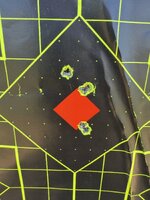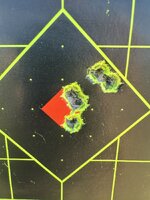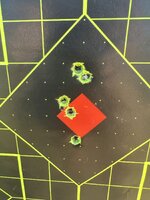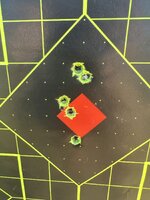- Joined
- Oct 22, 2014
- Messages
- 14,478
@Formidilosus two questions:
1) With modern quality barrels, what then would warrant a thicker barrel contour short of a reduction in POI for mounting heavy things on the barrel, machine gun use, or added weight for recoil reduction?
It seems with modern barrels, most of the reasoning is tied up in anecdotes and myth, or misinterpreting results. Ie. An assumption that thick barrel contours are more accurate due to heat and etc, when in reality the shooter is likely just more accurate due to the increase in rifle weight.
The only real benefit that a thicker barrel provides is more rounds before barrel mirage causes issues with aiming. Of course a mirage band solves that. However, the thicker barrel also takes longer to cool and stop barrel mirage.
2) When using a suppressor, have you noticed any detriment in accuracy/barrel life due to heat with threaded barrels that have a smaller thread diameter paired with a larger bore? Thus having less “meat” at the muzzle and being more susceptible to heat.
No.
For example, I’ve heard threading something like 6.5 or 308 with a 1/2x28 reduces the mass at the muzzle to such an extent that the muzzle can swell and deform under heat (especially with the added heat of the suppressor being mounted over the muzzle trapping heat further). There is physically enough metal there to do the thread job but allegedly not enough to withstand the heat stress.
For this very reason (and for want of a bigger shoulder), I had a 6.5 threaded at 9/16x24 for the extra mass, then affixed a permanent 9/16x24 to 5/8x24 adapter for the convenience. Not sure if this is just a theoretical problem that creates extra steps or a realistic one.
It’s theoretical BS at best. Almost no one/no company that talks about this stuff has actually done legit testing and long term use for themselves.
Hope that was understandable. Would appreciate the insight.
It was.





